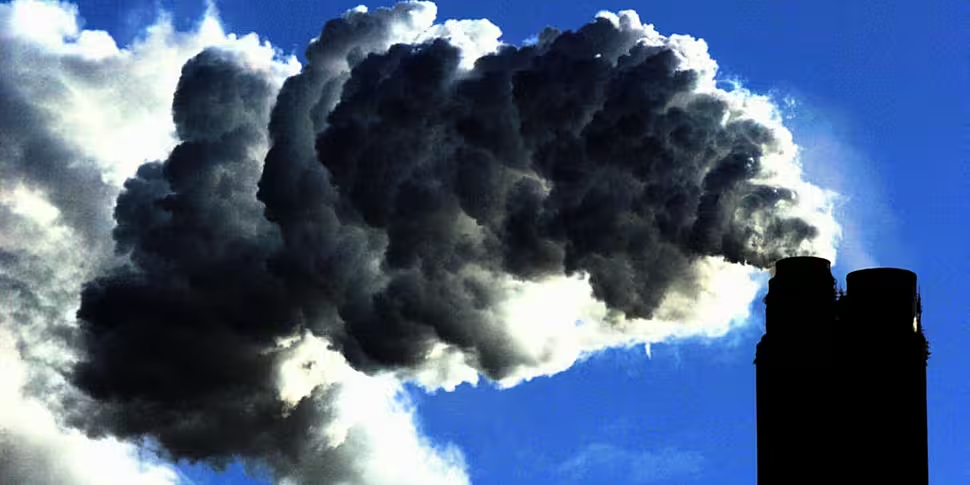The Government is planning a nationwide ban on the sale of smoky fuels over concerns about air pollution levels in Ireland.
The plan, to be published in February, would be introduced in phases and include coal, peat briquettes and sod turf, while wet wood is also likely to be included.
Concerns about air pollution have prompted the move, with the issue linked to increased hospital admissions and premature deaths.
It was reported in the Business Post yesterday that low smoke or so-called 'smokeless' fuels including some coals and dried wood products would be unaffected for the time being.
Recent figures from the Sustainable Energy Authority (SEAI), meanwhile, suggest minimal differences between the cost of smoky and low-smoke coals.
Cara Augustenborg, an environmental and policy developer, said a ban on smoky fuels in Dublin for the last three decades had led to a 70% reduction in smoke pollution and averted around 8,000 deaths.
She told Newstalk Breakfast that a nationwide ban is needed so that the health benefits can be shared throughout the population.
She explained: "If we rolled this out nationwide, not only would we be saving people from the harmful effects of air pollution but we would be saving €53m a year in the environmental, health and economic benefits of reducing this pollution."
Ms Augustenborg said that burning smoky fuel "is not the solution" to fuel poverty, and that we "have to get away from the idea of burning stuff in general for heat" because it's inefficient and leads to pollution.
She added that the Government was addressing this issue by increasing the fuel allowance from €24.50 a week to €28 in January.
Speaking on the same programme, Seamus Boland, CEO of Irish Rural Link, agreed that smoky fuels cause pollution and have led to deaths in the past, but disagreed over the ways and means a ban would be implemented.
He said people also die from cold-related illnesses in the winter, with fuel related poverty particularly impacting those dwelling in rural Ireland, living alone or on lower incomes.
"Fuel poverty is a real issue," he added, with vulnerable people or those with low-incomes tending to use less fuel in the wintertime, therefore impacting their health.
Mr Boland said: "Frankly what we have got to talk about, instead of bringing in a ban, which frightens people, which makes people insecure, is...that the fuel allowance is not adequate.
"What we're doing again on environmental matters is we're giving the completely wrong message, we know the air is affected and we know something has to be done.
"Whether we like it or not it's the lower incomes that suffer."
The Minister for Transport and Green Party leader Eamon Ryan said the ban would save lives, with a lot of rural towns nationwide having "a real problem" with pollution caused by burning the fuels.
He added that a significant proportion of Government spending next year would go towards the Warmer Homes Scheme, with people being given grants to retrofit their homes.









